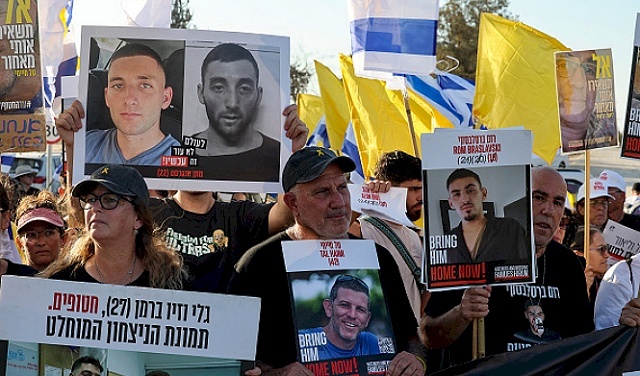
Top News
Israeli Disputes Over the Pace of Operations in Gaza Amid Hostage File Pressures
SadaNews - Israeli Channel 12 revealed on Saturday that there are disagreements between the political and military levels in Israel regarding the timeline for the upcoming military operation in Gaza.
While the political level is pushing for a swift operation, the army insists that it should be executed responsibly and cautiously, taking into account several key constraints, notably: the safety of the Israeli hostages in Gaza, protecting the soldiers, evacuating about a million Palestinians from the city, as well as the need to maintain international legitimacy for the operation.
The military establishment affirmed that what is happening is not a "time-wasting delay," but rather a calculated preparation aimed at ensuring the success of the operation and achieving its objectives.
Additionally, the Israeli army radio reported that the European hospital will serve as an alternative to the hospitals in Gaza City that are planned for evacuation.
Local teams and international organizations are overseeing the preparation of the hospital in Khan Younis to receive the displaced persons coming from Gaza City.
The army is also working on opening safe routes to the hospital, extending from the Mowassi area to eastern Khan Younis.
The newspaper "Maariv" reported that estimates from the security establishment suggest that Netanyahu sees the plan to reoccupy Gaza City as a fundamental condition for the survival of his government, and that abandoning the operation could lead to its disintegration.
The newspaper quoted an Israeli military source saying that Netanyahu "is determined to proceed with the (Gideon 2) operation to the end," adding that Netanyahu "realizes that without the operation he won't be able to maintain the cohesion of his government."
Netanyahu is facing pressure from his partners, including National Security Minister Itamar Ben Gvir and Finance Minister Bezalel Smotrich, who threaten to withdraw from the government if efforts move towards a ceasefire deal or reaching a prisoner exchange agreement with Hamas.
Regarding the prisoner exchange file, the military source clarified that Israel was negotiating two weeks ago according to the plan of U.S. envoy to the Middle East, Steve Cutz, for the release of some prisoners without halting the war, but after Hamas agreed to most of Israel's demands, including the return of ten live prisoners without conditioning the end of the fighting, Tel Aviv's rhetoric changed to include discussions of a comprehensive agreement that includes ending the war.
The newspaper confirmed that the Israeli army is preparing for a new phase of fighting, noting the reactivation of its forces and the call-up of reserves on September 2, after the end of the summer holiday, signaling a clear move towards a long-term military operation.
According to military estimates, fighting in Gaza may continue for additional months, with reservists being called up gradually. The army also plans early next week to continue pushing residents of Gaza City to flee southward in preparation for expanding operations.
In parallel, discussions about Hamas's response to the proposed prisoner exchange agreement are ongoing, as the movement expressed its readiness for a deal similar to that agreed upon by Prime Minister Benjamin Netanyahu two months ago, but the latter changed his position.
An Israeli official emphasized the priority of this file, stating: "There is an urgent need to get the hostages out of Gaza."
Read Also

Ahead of Trump Meeting.. Netanyahu to Hold Session Next Thursday on the Second Phase in Ga...

The Occupation Decides to Demolish More Homes in Noor Shams Camp

Abu Rudeineh: The International Community and the U.S. Administration Must Stop Aggression...

White House Chief of Staff Attacks Trump and His Associates: Sharp Criticism of Trump, Van...

Occupation Distributes Leaflets Demanding to Lower the Volume of the Call to Prayer in the...

The Council of Ministers Calls for Accelerating International Response for Urgent Relief i...

Salama Takes Oath Before President as Minister of Finance and Planning

